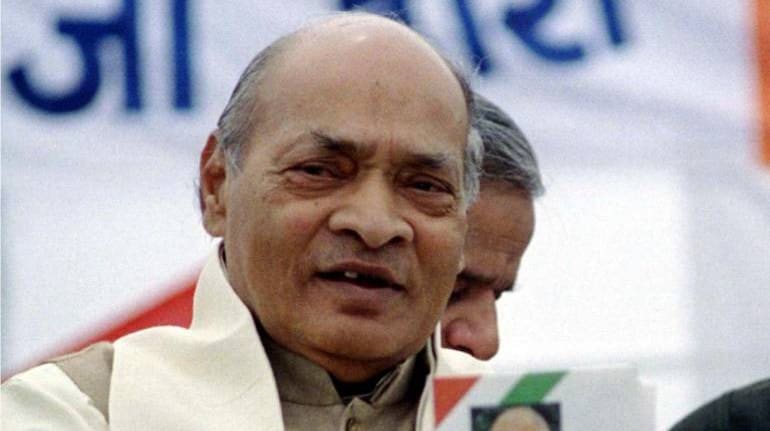



Today (June 28) marks the birth centenary of PV Narasimha Rao, India’s ninth Prime Minister. In 1921, Rao was born in a village in then Nizam-ruled Hyderabad. Apart from being the Prime Minister from 1991 to 1996, he held most of the important political portfolios during his career: External Affairs Minister, Home Minister, Defence Minister, Chief Minister of Andhra Pradesh, and so on.
On Rao’s centenary, we need to reflect on his life and lessons in a world which is getting increasingly divided on political and economic lines. After all, no one really faced these pressures better than Rao.
He became Prime Minister when India was facing both a political and an economic crisis. Globally, the world was torn due to a break-up of the Union of Soviet Socialist Republics (USSR), a long-term ally of India. Despite all these pressures, Rao managed to not just serve his five-year term but also laid foundations for today’s Indian economy. Yet he is often not given his due, and his image and decades of hard work were tarnished due to the corruption charges against him.
The Lion, The Fox, The Mouse
Rao’s life was brought to recent attention thanks to Vinay Sitapati’s biography Half Lion. Sitapati quotes Machiavelli who said a prince must imitate both a lion and a fox. The lion knows how to scare wolves but does not know the traps. Whereas a fox knows the traps but cannot defend against the wolves. This description of depicting politicians as lion/fox resembles describing central bankers as hawks (tightens interest rates), doves (eases interest rates) and owls (watchful).
Sitapati says Rao (almost) mastered this art of playing both the lion and the fox (and even the mouse). He did not have a full majority in Parliament and had to face no-confidence motions several times; yet he survived working around the traps. On opening the economy to the private sector, he played the lion pitching for foreign investment and also played the mouse when it came to protecting State employees. He played both the fox and the lion to build relations with other countries.
These roles backfired too. He should have played the lion by dismissing the Uttar Pradesh government in November 1992, but played the fox hoping the Babri masjid will not be demolished. He played the lion while ignoring Sonia Gandhi whereas he should have played the fox. On some economic reforms such as opening insurance and increased privatisation he played the mouse instead of being a lion.
Rao’s Legacy
Rao’s legacy is obviously in the space of economic reforms which has been hotly debated and will continue to do so as we complete 30 years of reforms in 2021. Some say Rao played a crucial role in ushering the reforms. Others, including Sitapati, suggest the Prime Minister allowed Finance Minister Manmohan Singh to take both credit and blame for the reforms.
In his 2021 book Money and Power: The World Leaders Who Changed Economics, British politician Vince Cable documented how certain politicians changed economics in their respective countries. Cable mentions Singh and not Rao for changing India’s economy.
However, this is only partially true. Even if Rao made Singh the face of the reforms, he was busy fighting another battle. He had to convince the Congress of these reforms. This was done by mentioning how reforms were a mere continuation of previous efforts by former Prime Ministers. One sees this in Singh’s 1991 Budget speech which had eight references to Rajiv Gandhi, three to Jawaharlal Nehru and two to Indira Gandhi.
What made Rao switch between different roles? As per Sitapati’s book, the Indian voter is also half lion as they expect their leaders to be powerful but do not give a clear mandate. From 1991 to 2014, India had six Prime Ministers who had to work around coalitions/outside support to keep the government functional. This gives the impression that the Indian voter is unsure about whether to centralise or decentralise power. The voter wants better standards of living but rarely votes for parties which promote economic growth (‘India Shining’ campaign in 2003). In Sitapati’s words, Rao’s “genius was that his own ambiguities matched those of countrymen”.
The Rao Approach
Since 2014, the voter has had a change of heart by giving a clearer mandate in the general elections of 2014 and 2019. A few state elections have also gone in this way. Will these victories tempt leaders to play just the lion? Not necessarily. The proposed agricultural reforms required a fox-like approach of building consensus with farmers and avoiding the traps. A similar approach was needed for the GST as well. Even for privatisation, a mix of a lion/fox/mouse will be needed so that the losses are minimised.
The Rao approach applies globally too where we see trends of strongmen trying to play a lion. The approach backfired, especially during the pandemic, which required both the wisdom of a fox and even at times be a mouse allowing experts to make the calls. This attitude of approaching it as a lion has also divided the world into a highly-fragmented one with rising support for protectionism and anti-migration calls. This will undo the progress humanity has achieved since World War II.
Finally, to end with a hypothetical question: How would have Rao assessed his own legacy? He would have been disappointed that he couldn’t leave an imprint on the political arena. But then he would have been surprised how he of all leaders ended up shaping India’s economic policy which has mostly stood the test of time. He would also smirk at the irony of his own party being unable to learn from his legacy, whereas the ruling BJP, which opposed him during his time in office, is now reflecting on his achievements.
Discover the latest Business News, Sensex, and Nifty updates. Obtain Personal Finance insights, tax queries, and expert opinions on Moneycontrol or download the Moneycontrol App to stay updated!